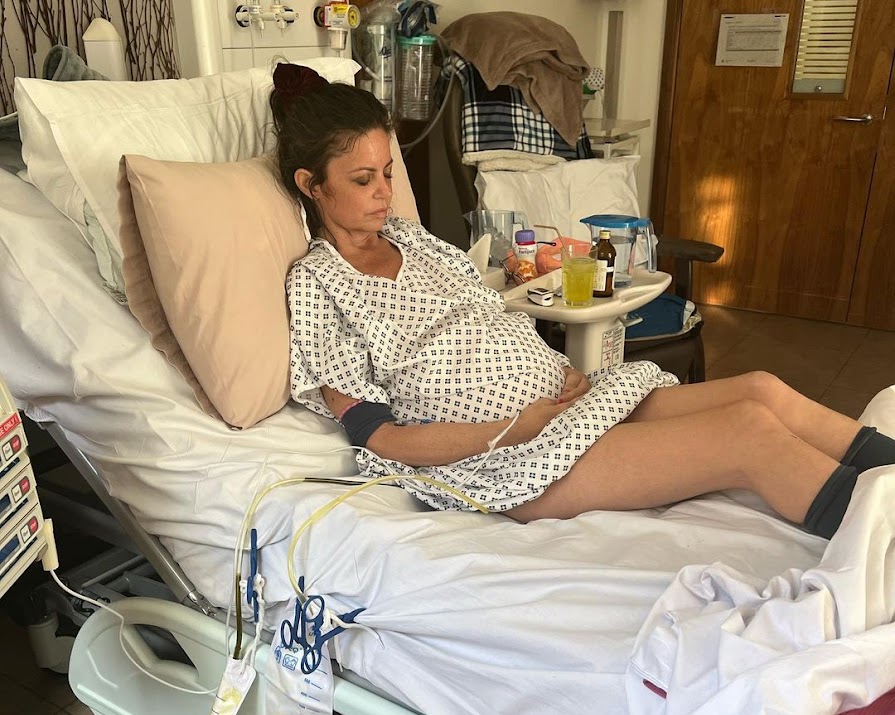By Sarah Finnan
05th Jul 2022
05th Jul 2022
All your burning health questions answered by the professionals.
Dame Deborah James was just 35 years old when she found out that she had stage three bowel cancer in 2016. Turning her diagnosis into an incredible force for good, the former teacher became a prominent blogger, podcaster and cancer campaigner in the UK – using her own personal health struggles to raise millions for life-saving cancer research.
Last week, James’ loved ones confirmed the sad news that she had passed – six years after her initial diagnosis.
“Deborah, who many of you will know as Bowelbabe, was an inspiration and we are incredibly proud of her and her work and commitment to charitable campaigning, fundraising and her endless efforts to raise awareness of cancer that touched so many lives.
Advertisement
“Deborah shared her experience with the world to raise awareness, break down barriers, challenge taboos and change the conversation around cancer. Even in her most challenging moments, her determination to raise money and awareness was inspiring.”
Thanking the public for their continued support, James’ family concluded their heartfelt statement with a message from Deborah herself – “Find a life worth enjoying; take risks; love deeply; have no regrets; and always, always have rebellious hope. And finally, check your poo – it could just save your life.”

Noticing a rise in cases concerning bowel cancer in younger patients, Professor Reza Kalbassi – consultant in colorectal surgery at the Beacon Hospital – says that many people associate bowel cancer with the over 50s, and so attribute symptoms such as bleeding and discomfort to haemorrhoids or IBS.
Keen to raise awareness about colorectal cancer presenting late in younger people, he shares what the most common things to look out for are and why it’s so important not to dismiss even the most minor changes to your health.
Colorectal cancer is the most common malignancy of the gastrointestinal tract. In Ireland, it is the third most frequently diagnosed cancer in males and the fifth most frequently diagnosed cancer in females. It is most often diagnosed in those over 50, but it can also present in younger patients too.
Advertisement
Although the overall incidence of colorectal (large bowel) cancer in Ireland has remained reasonably stable over the past two decades, data suggests that, in many European countries, colorectal cancer incidences in the younger population (those under 50), appear to be increasing. This increase in the rates of colorectal cancer in the young is also being seen in Ireland.
Therefore, it is important to be aware of pre-disposed risk factors for colorectal cancer – many of which are well-defined and easy to look out for. These risk factors include; a positive family history, male sex, a “Western diet” with high intake of animal-based and processed foods, smoking, the presence of a pre-existing metabolic syndrome and longstanding inflammatory bowel disease involving the colon.
Colorectal cancer can also occur in younger women. Oftentimes, patients dismiss their symptoms or their presentation is delayed, but there are several signs to look out for. Symptoms that warrant urgent investigation include rectal bleeding persisting for longer than six weeks, a change in bowel habit to constipation or diarrhoea, looser stool or increased frequency persisting for more than six weeks.
Young patients tend to present later and often ignore their symptoms for a period of time. This can result in diagnosis of more advanced disease.
Colonoscopy is the gold standard for investigation of the large bowel. It is a procedure done under sedation as a day case in various endoscopy units in Irish hospitals. It is well tolerated by patients and is an important element of determining if there are underlying issues. It allows for thorough assessment and biopsy of a potential tumour or abnormality in the large intestine.
If one is symptomatic or concerned, it is best to visit your GP as a first step, get assessed and referred to a specialist consultant or centre for investigations where treatment will be made available if necessary. Early presentation would lead to better outcome.
Advertisement




















